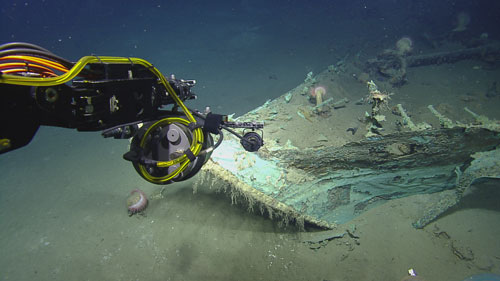The Search for Lost Ships:
Methodology for Discovering and Studying Sunken Shipwrecks
By:
Frederick "Fritz" Hanselmann
Texas State University, San Marcos
| When: | Friday, November 15, 2013, 10:30 a.m. to 11:30 a.m. Join us for coffee beginning at 10:00 a.m. |
| Where: | Seminar Conference Room, 10100 Burnet Road, Bldg 196-ROC, Austin, Texas 78758 |
| Host: | Jamie Austin, UTIG |
Click for a Live Broadcast.

Abstract
While much is known about our ancestors that preceded us on land, the vast oceans, lakes, and rivers that cover 70% of the earth's surface, provided the preferred medium through and over which humankind traveled for thousands of years. Vessels and craft of all kinds have sunk due to storms, battles, and human error.
Shipwrecks can be unique from terrestrial archaeology sites in that they provide a very clear snapshot of not only the material culture for a specific time period, but often times yield a very well preserved collection of artifacts for analysis, all of which gives us further insight into broader human activity. In the search for and the study of shipwrecks, the Initiative takes a multi-disciplinary approach by incorporating experts and technology across other scientific disciplines.
The Underwater Archaeology and Exploration Initiative at The Meadows Center for Water and the Environment at Texas State University studies shipwrecks from the depths of the Gulf of Mexico to the Caribbean coast of Colombia.




